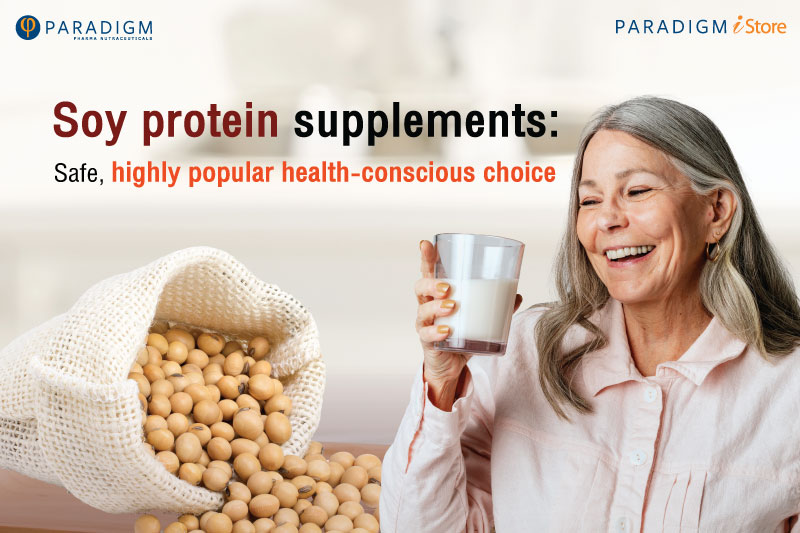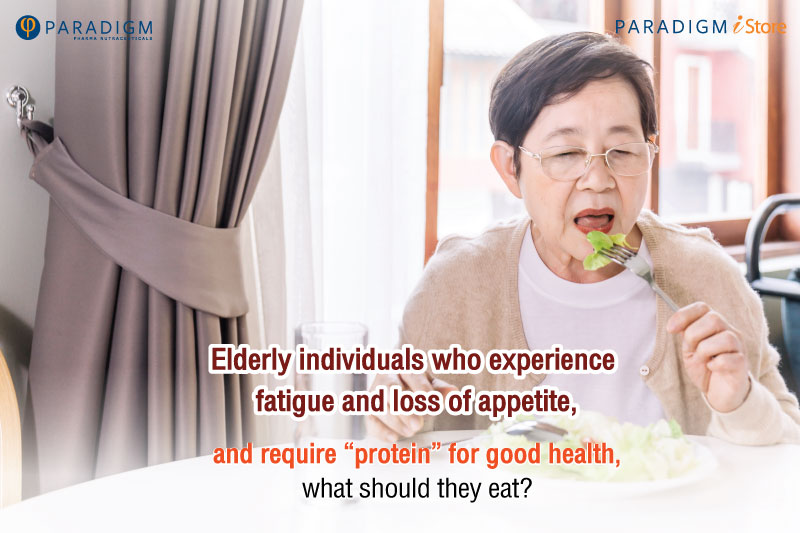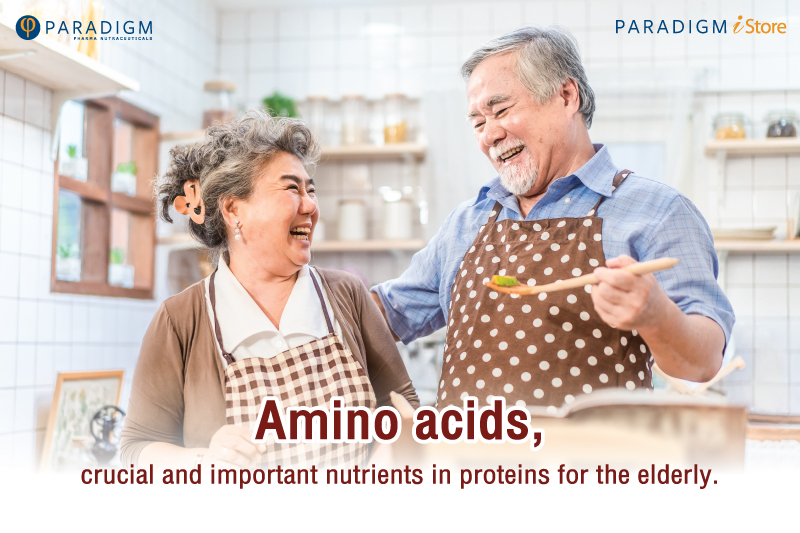What is protein and how is it essential for the body? Protein is a vital nutrient for the growth and development of the body.
Tag Archives: protein
In today’s society, one of the family members that every family, especially Thai families, must have and pay special attention to is the ‘elderly.’ They are considered important family members who require special care, especially in terms of physical health, both internally and externally. The elderly are considered vulnerable and prone to illness. Common symptoms often found in this age group include fatigue, loss of appetite, or even insomnia. These symptoms can stem from daily lifestyle choices such as inadequate food intake, difficulty chewing or digesting, or repetitive consumption of the same foods. As a result, the daily nutritional intake may not be sufficient, particularly in terms of amino acids or protein. Despite their advanced age, this demographic still requires protein intake similar to younger individuals. The importance of ‘protein’ as a crucial nutrient for the elderly. 1. Fish – Consuming red meat may be harder to digest than usual, and it also contains high levels of fat and cholesterol. Therefore, it is recommended to consume fish, which is a high-quality source of protein, low in fat, and easy to digest. 2. Eggs – An easily consumed food rich in beneficial nutrients for the body. In addition to protein, one egg contains iron. It is advisable to consume one egg per day. For individuals with high blood cholesterol, high blood pressure, diabetes, or heart and vascular diseases, it is recommended to consume no more than 3 eggs per week or to choose to consume only egg whites to avoid increasing cholesterol levels. 3. Milk or Soy Milk – A high-protein food that also contains a significant amount of calcium. It is recommended to drink one glass per day. However, for individuals with high blood cholesterol or those who are overweight, it is advised to opt for low-fat milk or unsweetened
From the study, it was found that 20-30% of the elderly tend to receive insufficient nutrients, especially amino acids




